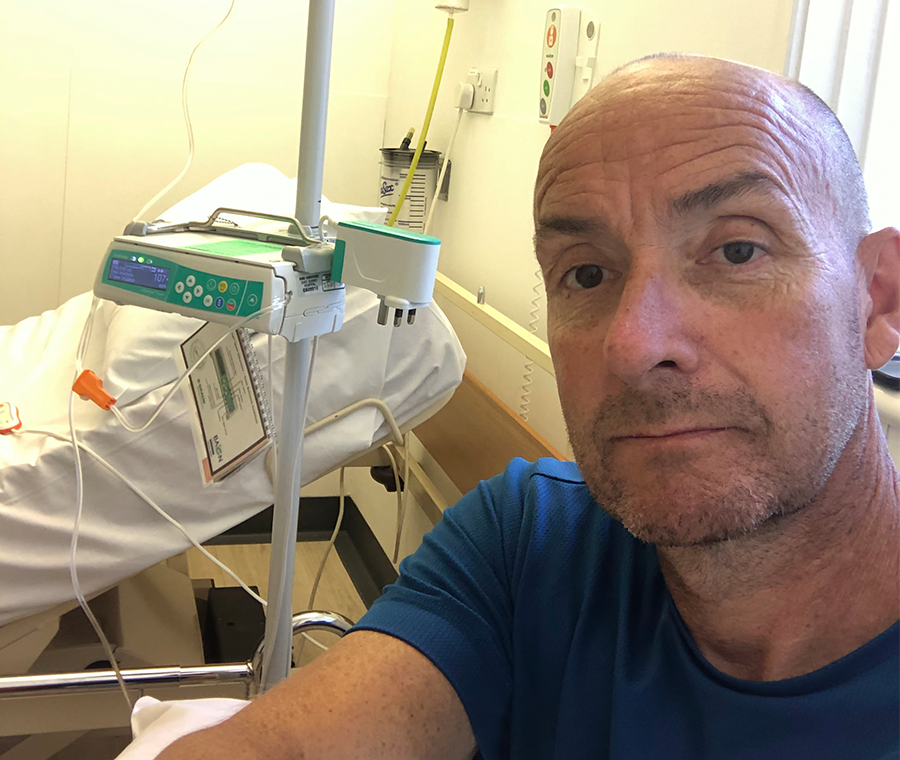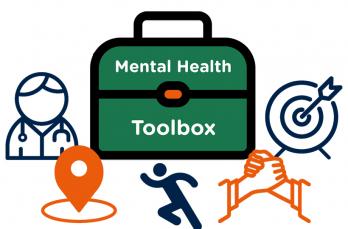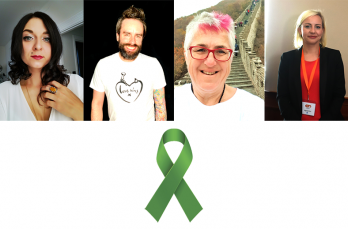
Men face a health crisis that isn’t being talked about enough, leading to men often dying too young. This November, we’re raising awareness about some of the biggest health issues faced by men: prostate cancer, testicular cancer, and mental health and suicide prevention.
Our colleague Ken has also shared his cancer journey. Engineering Manager Ken has been in the industry for 34 years and in July 2020, he was told he had Non-Hodgkin's lymphoma stage four – cancer of the blood.
Ken said: “On the Monday I met up with my consultant to run through what needed to happen and he let me know a bit more about the journey I could expect. It was all happening very quickly, with my first chemotherapy session starting the following Tuesday. They would continue every three weeks for a minimum of six sessions, with blood and COVID tests three days before each session.”
“People asked me how I knew? What where the signs? I always answer saying it was just little things really, mainly fatigue. I was falling asleep as soon as I got in from work which I just put down to being mentally drained, but I am very much a person if my body changes in the slightest way go to the doctor and get it checked out, so I did. I was sent for blood test and within six weeks, and the mental worry you go through, I was starting my first chemo session and six months later I was given all-clear in December.”
Prostate cancer
According to Prostate Cancer UK, about 1 in 8 men in the UK will get prostate cancer in their lifetime. It mainly affects men over 50, and your risk increases with age. The risk is even higher for black men and men with a family history of prostate cancer.
Prostate cancer can develop when cells in the prostate start to grow in an uncontrolled way. Some prostate cancer grows too slowly to cause any problems or affect how long you live. Because of this, many men with prostate cancer will never need any treatment. But some prostate cancer grows quickly and is more likely to spread. This is more likely to cause problems and needs treatment to stop it spreading.
Prostate cancer that’s contained inside the prostate (called localised prostate cancer or early prostate cancer) doesn’t usually cause any symptoms. That's why it's important to know about your risk. But some men might have some urinary problems. These can be mild and happen over many years and may be a sign of a benign prostate problem, rather than prostate cancer. If you think you might be at risk of prostate cancer or are experiencing any symptoms, visit your GP.
Testicular cancer
Around 2,300 men are diagnosed with testicular cancer each year in the UK, according to Cancer Research UK. That’s about one out of every 100 cases of cancer (1%) diagnosed in men.
Checking for testicular cancer is sometimes called testicular self-examination. Doing this regularly means you soon get to know what feels normal for you. A normal testicle should feel smooth and firm, but not hard.
Hold your scrotum in the palm of your hand. Use your fingers and thumb to examine each testicle. You should feel for:
- Lumps or swellings.
- Anything unusual.
- Differences between your testicles.
Coping with stress
Stress can come from any part of our lives and affects each of us differently. For some it’s the stress of caring for children, for others it may be deadlines at work. Not to mention unforeseen and uncontrollable events such as serious illness and deaths.
All of this can take its toll on our mental health and wellbeing. Everyone is different but there are some ways to help de-stress – the key is finding something that works for you:
- Take time to ‘wind down’ and ‘clear your head’.
- Keep a stress diary and challenge your own thinking.
- Talk to someone about how you're feeling.
- Make some lifestyle changes - plan your money, manage your time, make a change to your routine.
- Importantly – do something nice for yourself every day, because you want to, not because you have to.
We provide a range of free services to support our colleagues. As well as our network of Mental Health Supporters and First Aiders, our Employee Assistance Programme (EAP) partner at Life and Progress provides an independent source of professional, impartial support. It’s designed to help our people find help whenever they need it and is free for all colleagues to use, all day every day, and is completely confidential.
We also have a fantastic, totally confidential tool called MyMindPal which will helps people keep tabs on their mental fitness. It's full of simple exercises, tools and techniques to help people enjoy the present moment more and cope with life's stresses.




